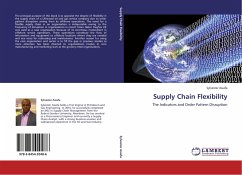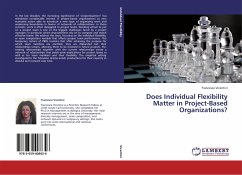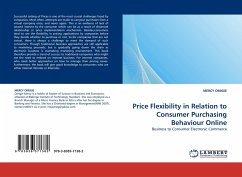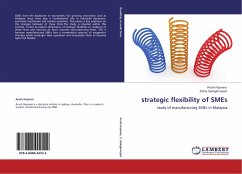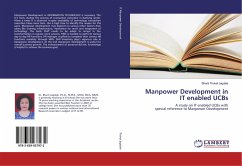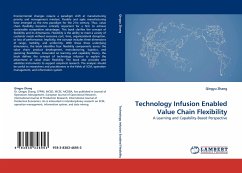
Technology Infusion Enabled Value Chain Flexibility
A Learning and Capability-Based Perspective
Versandkostenfrei!
Versandfertig in 6-10 Tagen
45,99 €
inkl. MwSt.

PAYBACK Punkte
23 °P sammeln!
Environmental changes require a paradigm shift at manufacturing priority and management mindset. Flexible and agile manufacturing have emerged as the new paradigm for the 21st century. Thus, value chain flexibility becomes critically important for a firm to achieve sustainable competitive advantages. This book clarifies the concept of flexibility and its dimensions. Flexibility is the ability to meet a variety of customer needs without excessive cost, time, organizational disruption, or loss of performance. Implicitly, the concept includes three dimensions of range, mobility, and uniformity. W...
Environmental changes require a paradigm shift at manufacturing priority and management mindset. Flexible and agile manufacturing have emerged as the new paradigm for the 21st century. Thus, value chain flexibility becomes critically important for a firm to achieve sustainable competitive advantages. This book clarifies the concept of flexibility and its dimensions. Flexibility is the ability to meet a variety of customer needs without excessive cost, time, organizational disruption, or loss of performance. Implicitly, the concept includes three dimensions of range, mobility, and uniformity. With these three underlying dimensions, the book identifies four flexibility components across the value chain: product development, manufacturing, logistics, and spanning flexibilities. Grounded on learning and capability theory, the book defines the concept of technology infusion to explain the attainment of value chain flexibility. The book also provides and validates instruments to support empirical research. The analysis should be useful to researchers and practitioners in the fields of SCM, operation management, and information system.



